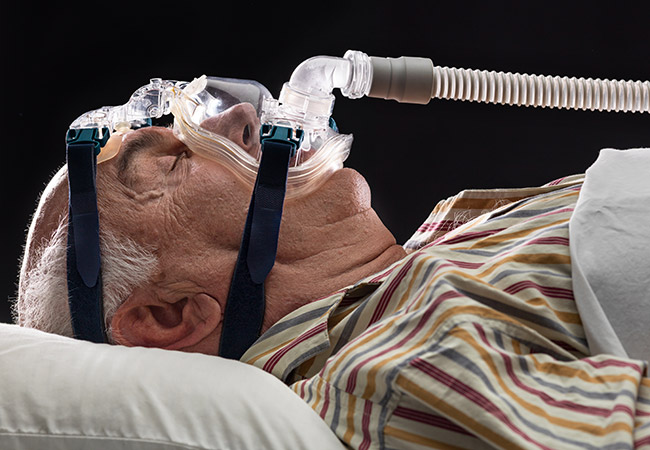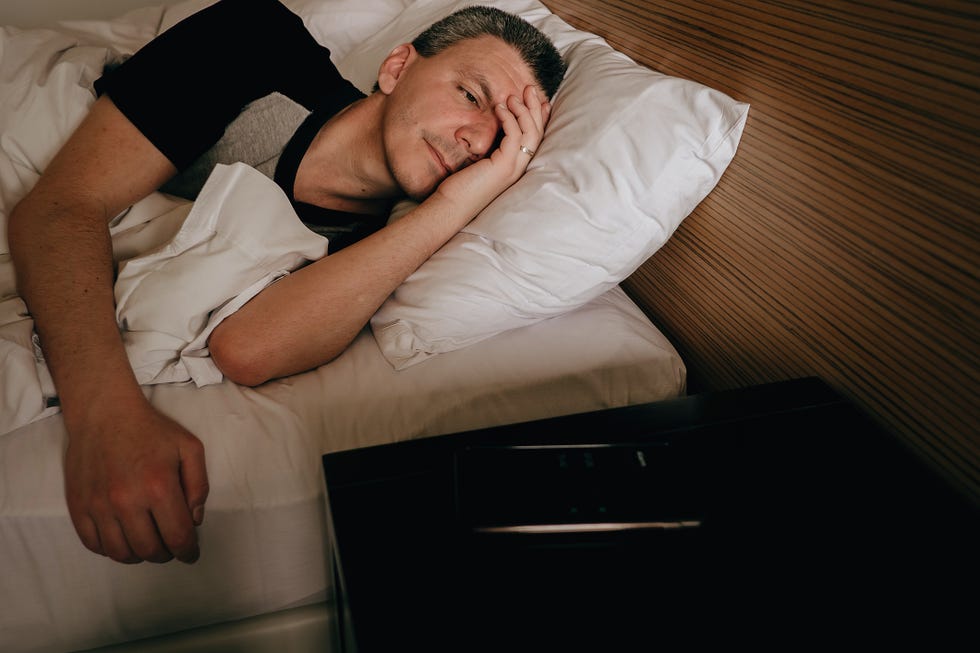Reliable Treatment Solutions for Managing Sleep Disorders and Enhancing Peaceful Sleep
In the realm of health care, the management of sleep conditions and the pursuit for relaxing rest are crucial elements of overall wellness. As we browse the intricate landscape of rest problems and seek to enhance our sleep experience, a much deeper understanding of these treatment remedies may hold the secret to opening a much more rejuvenating and satisfying corrective trip.
Cognitive Behavior Modification for Sleep Problems (CBT-I)
Cognitive Behavioral Treatment for Sleeplessness (CBT-I) is an organized, evidence-based therapy technique that concentrates on dealing with the underlying elements contributing to rest disruptions. This kind of treatment intends to modify behaviors and thoughts that aggravate sleeping disorders, eventually promoting healthy sleep patterns. CBT-I usually entails a number of crucial parts, including cognitive treatment, rest constraint, stimulus control, and sleep health education.
Cognitive therapy helps individuals determine and change negative idea patterns and beliefs concerning sleep that may be preventing their capacity to drop or remain asleep. Rest limitation entails limiting the amount of time spent in bed to match the individual's actual rest duration, consequently boosting sleep efficiency (sleep therapy). Stimulus control techniques help develop a strong association between the bed and rest by motivating individuals to go to bed just when sleepy and to stay clear of participating in stimulating activities in bed
Additionally, sleep health education concentrates on establishing healthy rest behaviors, such as keeping a consistent rest routine, creating a relaxing going to bed regimen, and optimizing the sleep setting. By dealing with these variables adequately, CBT-I provides an effective non-pharmacological intervention for handling sleep problems and enhancing total rest quality.
Rest Hygiene Practices
Having actually established the structure of cognitive restructuring and behavioral adjustments in attending to sleeping disorders via Cognitive Behavior modification for Sleeping Disorders (CBT-I), the emphasis now moves in the direction of discovering necessary Sleep Hygiene Practices for maintaining optimum sleep high quality and total health.
Sleep health techniques incorporate a series of habits and environmental aspects that can considerably impact one's capacity to drop off to sleep and remain asleep throughout the evening. Consistent rest and wake times, developing a relaxing going to bed routine, and optimizing the sleep atmosphere by keeping it dark, quiet, and cool are important parts of great sleep hygiene. Restricting direct exposure to screens before bedtime, avoiding stimulants like high levels of caffeine near to bedtime, and participating in routine physical task throughout the day can likewise promote better rest quality.
Furthermore, practicing leisure strategies such as deep breathing exercises or meditation before bed can help relax the mind and prepare the body for rest. By including these rest hygiene practices into one's daily routine, people can develop a healthy and balanced sleep pattern that supports relaxed sleep and overall health.
Leisure Strategies and Mindfulness
Carrying out relaxation techniques and mindfulness techniques can play a critical function in fostering a feeling of calmness and promoting high quality rest. sleep disorder treatment. These techniques aim to silent the mind, minimize stress and anxiety, and create an ideal environment for relaxed rest. One extensively practiced approach is deep breathing exercises, where people concentrate on slow, deep breaths to loosen up the mind and body. Dynamic muscle mass leisure involves tensing and afterwards releasing each muscular tissue group, promoting physical relaxation. Additionally, directed images can help insomnia and hypersomnia transfer people to a calm location check my blog in their minds, assisting in anxiety decrease and enhancing sleep high quality.
By integrating these methods into a going to bed regimen, individuals can signal to their bodies that it is time to prepare and unwind for rest. Overall, incorporating leisure methods and mindfulness practices can substantially contribute to managing rest conditions and improving total rest quality.

Medication Options for Rest Disorders
After discovering relaxation strategies and mindfulness practices as non-pharmacological interventions for enhancing rest top quality, it is vital to think about medicine choices for people with sleep problems. In cases where lifestyle modifications and therapy do not supply enough alleviation, medicine can be a beneficial tool in managing sleep disturbances.
Generally prescribed medications for sleep conditions consist of benzodiazepines, non-benzodiazepine hypnotics, antidepressants, and melatonin receptor agonists. Benzodiazepines, such as diazepam, are sedatives that can help generate rest, yet they are generally recommended for temporary use as a result of the risk of dependence. Non-benzodiazepine hypnotics like zolpidem are also made use of to treat sleeplessness and have a reduced danger of dependence contrasted to benzodiazepines. Antidepressants, such as trazodone, can be beneficial for people with co-occurring clinical depression and rest disruptions. Melatonin receptor agonists, like ramelteon, target the body's all-natural sleep-wake cycle and can be handy for managing sleep patterns.
It is critical for individuals to seek advice from a medical care company to identify one of the most ideal medication alternative based upon their specific sleep condition and case history.
Light Therapy for Circadian Rhythm Law
Light therapy, also recognized as phototherapy, is a non-invasive therapy method made use of to control body clocks and enhance sleep-wake cycles. This therapy entails exposure to intense light that imitates natural sunshine, which assists to reset the body's body clock. By subjecting individuals to details wavelengths of light, commonly in the morning or night depending on the wanted effect, light therapy can successfully adjust the body clock to promote wakefulness during the day and enhance peaceful rest during the night.
Research study has shown that light therapy can be especially valuable for people with body clock conditions, such as postponed sleep stage disorder or jet lag. It can also be practical for those experiencing seasonal affective condition (SAD), a sort of depression that normally takes place throughout the cold weather Continued when all-natural light exposure is decreased. Light therapy is generally well-tolerated and can be made use of together with other treatment approaches for sleep conditions to enhance end results and improve general rest top quality.
Verdict
Finally, effective therapy solutions for managing rest problems and boosting relaxed sleep consist of Cognitive Behavioral Treatment for Sleeping Disorders (CBT-I), rest health methods, relaxation strategies and mindfulness, medication options, and light treatment for body clock regulation. These methods can assist individuals enhance their rest top quality and total wellness. It is necessary to speak with a doctor to establish one of the most appropriate approach for attending to sleep issues.
As we browse the detailed landscape of rest problems and seek to enhance our rest experience, a deeper understanding of these treatment services may hold the trick to unlocking a much more rejuvenating and meeting restorative journey.
Rest limitation includes restricting the amount of time invested in bed to match the individual's real rest period, consequently increasing rest efficiency. Regular sleep and wake times, developing a relaxing bedtime routine, and optimizing the sleep environment by maintaining it dark, quiet, and cool are vital parts of great rest health. Light therapy is usually well-tolerated and can be used in combination with various other treatment methods for sleep conditions to optimize results and enhance overall sleep quality.
